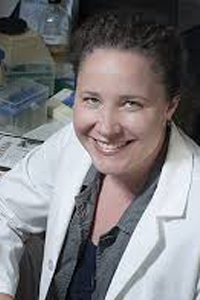
Caitlin Pepperell
Assistant Professor
1550 Linden Drive, room 5301
(608) 262-5983
Humans interact with billions of micro-organisms, and the vast majority of these interactions are inconsequential or beneficial to us. Disease results when the micro-organism has the capacity for virulence and response by the host is inadequate or self destructive. How do these antagonistic interactions evolve? What evolutionary forces are responsible for the diversity in outcomes when pathogens encounter hosts? How do micro-organisms become adapted to a pathogenic lifestyle? These are some of the questions we are interested in. Work in the lab centers on analysis of genomic data sets from natural populations of humans and human pathogens. For the most part we focus on granulomatous diseases (e.g. TB, invasive fungal infections) that result from complex and sustained interactions between pathogen and host, and are associated with diverse outcomes. We use a variety of different data types (e.g. epidemiological, historical, ethnographic, archeological) to contextualize analyses of population genetic data. We also work with collaborators to develop ecological models and address these questions using integrated ecological and evolutionary approaches
